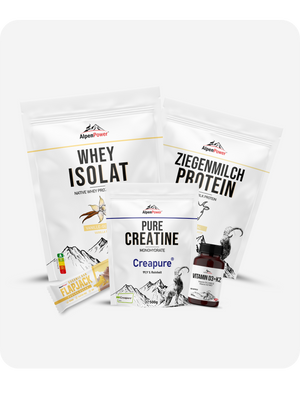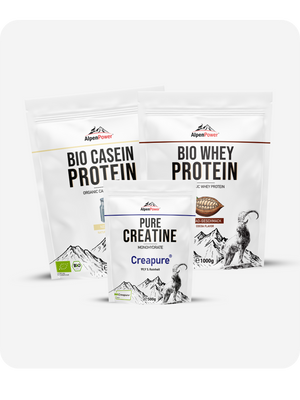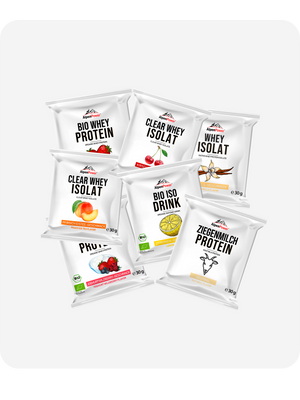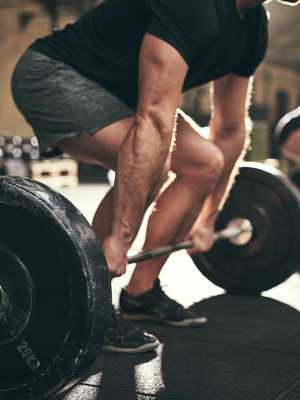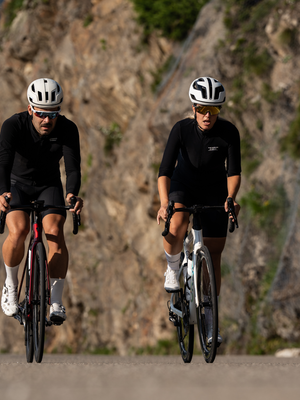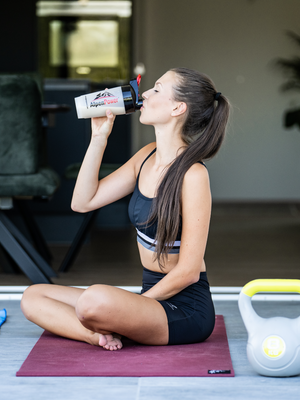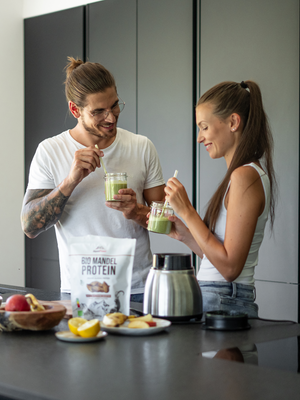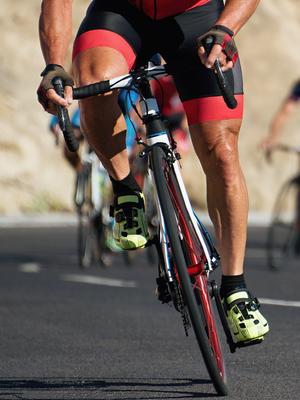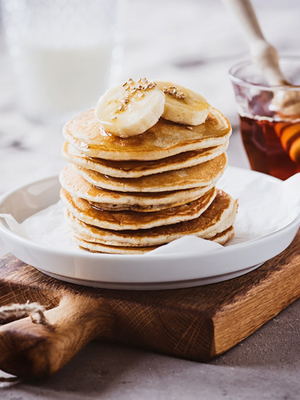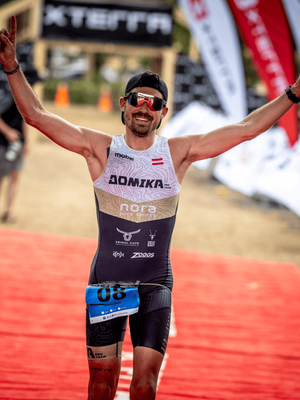A healthy gut is much more than just a digestive organ - it is a central hub of our immune system. Around 70% of immune cells are found in the gut. For athletes, this means that a stable intestinal flora not only supports general health, but also regeneration, energy supply and performance. Especially in the transition period between summer and winter, it is worth focusing on intestinal health.
 The gut microbiome
The gut microbiome
The key to a strong immune defense
The intestinal microbiome comprises billions of microorganisms that live in the digestive tract and fulfill a variety of essential tasks. They produce short-chain fatty acids such as butyrate, strengthen the intestinal mucosa, inhibit harmful germs and communicate directly with immune cells. Studies show: A diverse microbiome is directly linked to a better immune balance and a lower tendency to inflammation (Lazar et al., 2022; Belkaid & Hand, 2014).
If the microbiome is out of balance - for example due to an unbalanced diet, lack of sleep, stress or antibiotics - the intestinal barrier function can be weakened. The result: inflammatory processes increase and susceptibility to infections rises.
Nutrition for the gut
Importance of fiber, pre- & probiotics as a basis
A gut-friendly diet is the basis for a strong immune system. This is particularly important:
Dietary fiber:
Soluble fibers from oats, linseed, legumes, fruits and vegetables serve as "food" for beneficial intestinal bacteria. They promote the formation of butyrate, which strengthens the intestinal barrier.
Prebiotics:
Special dietary fibers (e.g. inulin, fructooligosaccharides) that specifically support the growth of "good" bacteria such as bifidobacteria.
Probiotics:
Living microorganisms (e.g. Lactobacillus, Bifidobacterium) that supplement and regulate the intestinal flora.
Polyphenols:
Secondary plant substances from berries, green tea or turmeric have an anti-inflammatory effect and promote bacterial diversity.

Immune system & training
Balance instead of overload
Moderate, regular exercise acts like a booster for the immune system: it improves blood circulation, lymph flow and the activity of immune-regulating cells. Studies show that athletes with a balanced training schedule are less likely to suffer from colds than inactive people (Nieman, 2019).
But it's the dose that makes the difference. Excessive stress without sufficient regeneration can temporarily weaken the immune system - the so-called "open window phenomenon". In the hours following intensive sessions, the body is more susceptible to infections as stress hormones change the balance of immune cells.
Practical recommendations for the fall:
-
Adapt training volume to shorter days & colder temperatures
-
Plan for sufficient regeneration (sleep, nutrition, warmth)
-
Replenish carbohydrate stores - low glycogen levels increase susceptibility to infection
-
Consciously periodize load and relief phases
Nutrition & lifestyle
How to keep your gut & immune system strong
-
Daily fiber intake: at least 30 g/day from whole grains, fruit, vegetables and pulses
-
Fermented foods: Yogurt, kefir, kimchi, sauerkraut provide probiotic cultures
-
Targeted supplementation: Probiotics, vitamin D and omega-3 support immune cells
-
Sleep & stress management: Chronic stress reduces microbial diversity - Relaxation (e.g. yoga, walks, breathing exercises) strengthens the gut-brain axis
-
Sufficient fluids: 30-35 ml per kg body weight daily
Recommended products from AlpenPower
-
Organic pea protein - to support the microbiome
-
Organic psyllium husks - rich in fiber for the intestines
-
Omega-3, vitamin D3 & K2, Immune Plus - for the immune system and cell health
Conclusion
The gut is the center of the immune system - and its health determines how resilient we are through the cold season. A conscious diet, measured training and good regeneration form the three pillars of a strong immune system. This keeps your body fit, full of energy and efficient - even in fall and winter.
Author: Laura Bahmann
Sources
Belkaid, Y., & Hand, T. (2014). Role of the microbiota in immunity and inflammation. Cell, 157(1).
Lazar, V. et al (2022). Gut microbiota: Beyond nutrition - the key to immunity. Front. Immunol.
Walsh, N. P. (2019). Nutrition and athlete immune health. Eur. J. Sport Sci.
Nieman, D. C. (2019). Exercise, infection, and immunity. J. Sport Health Sci.
-
Campbell, J. P. et al (2021). The impact of exercise on immune function: Open window revisited. Front. Immunol.
